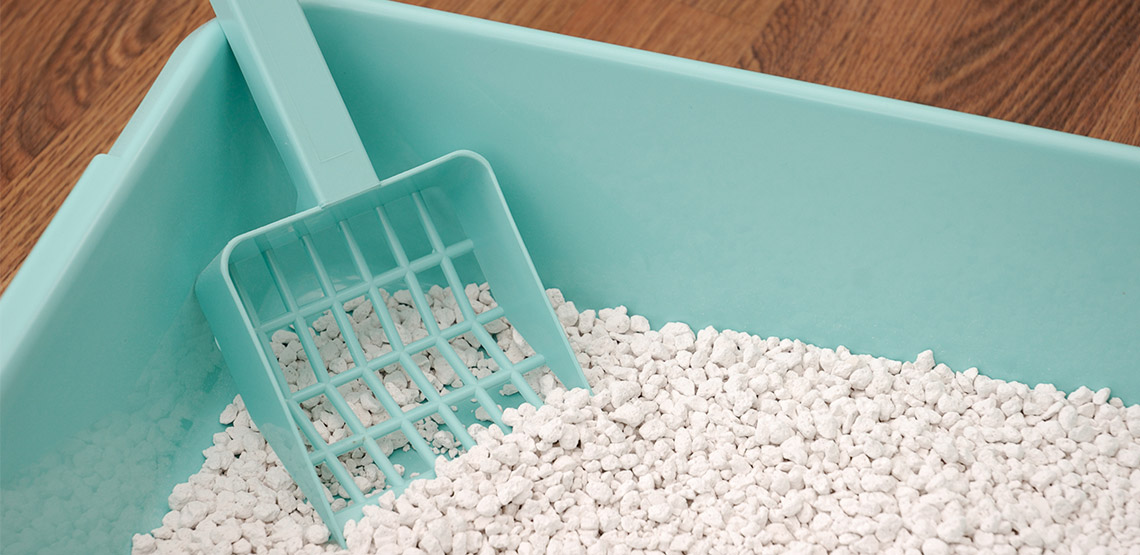Sometimes It's Trial and Error
Finding the right litter box for your cat can be a struggle, especially if you’re a first-time cat owner. As you may know, many cat owners go through a variety of litter boxes until they find the one that works best for their cat. Plus, when you’re training your cat to use a litter box for the first time, you want it to go as smoothly as possible, and that can’t happen if you don’t have the right litter box.
To make things simple, we’ve created this guide that will help you find the best litter box for your cat.
Different Kinds of Litter Boxes
There are lots of different kinds of litter boxes, with varying degrees of success and failures. The most common forms of litter boxes are:
Litter Pans
The most simple type of litter box, litter pans are just as you may think: a simple, small pan where cats can do their business. Most litter pans have no top and are quite small, which makes it ideal for smaller homes or apartments that don’t have room for large litter boxes.
Self-Cleaning Boxes
Just as the title suggests, self-cleaning boxes are, well, self-cleaning. This box is quite advanced and collects the waste from the litter, and then stores it in a disposable plastic container or bag (depending on the brand/model).
Covered Boxes
Great for cats that like a little privacy, these litter boxes come with a cover that keeps the litter from view. While these boxes are much bigger than the basic litter pans, most cats like to have privacy and greatly enjoy covered litter boxes.
Pros & Cons of Each Litter Box
Sometimes, you just have to learn which type of litter box your cat will love. However, it’s always nice to start with an idea of what the pros and cons of each litter box actually are. Depending on your time, budget, and your cat’s own needs, this list can help you narrow down what type of litter box would best be suited for your cat.
Litter Pans
Pros
- Cheaper
- Take up less space
- Easy to clean
Cons
- Because of the open top, odors are more obvious
- Litter can be kicked out of the box quite easily
Self-Cleaning Boxes
Pros
- Easier upkeep
- Very convenient
Cons
- Can cost a lot more than other options
- Can make cats jumpy or skittish at first because of the animation
Related Search Topics (Ads):
Covered Boxes
Pros
- Great for cats who want privacy
- Keeps unpleasant odors and messy litter at bay
- Most cats learn to enjoy the privacy of covered litter boxes
Cons
- Harder to clean
- Can be more costly than litter pans
- Are much bigger (and sometimes bulkier) than litter pans
- Some cats may need to learn to enjoy the covered box
How to Pick the Right One
Regardless of which type of litter box you choose, there are ways to narrow down your options. All litter boxes should be the right size. This means that, generally, you’ll have a different litter box for your kitten than you would your adult cat. For kittens and smaller cats, you should stick to litter boxes with lower sides (around 2-3 inches), so that they will be able to enter it easily. If you have a full grown cat, litter boxes that are about 24 inches long/wide with 4-inch walls are the best options.
The majority of litter boxes are made of plastic. Plastic doesn’t normally absorb unpleasant odors that find themselves in litter boxes often, which is a plus.
When finding the right litter box, you should always make sure to keep it where your old litter box was. Cats like things to remain in an orderly fashion, and they love to stick to their habits. They might become upset if you move it. If you absolutely have to move it, make sure it’s in an area where they can easily and quickly access it.
Some cats just need some time to determine if they like the litter box or not, especially if you choose a covered or self-cleaning box. Some cats don’t know they like the privacy until after they use the covered box a few times, while some cats know immediately that they enjoy this form of solitude. With regards to self-cleaning boxes, the animated electronics may scare some cats and make them quite timid. If your cat is already timid, you should probably avoid these.
The most important aspect is finding out which litter box works best for your cat. It may take some time to find out what your cat wants or needs in the long run, but once you discover the best litter box for you and your cat, it’s such a big sigh of relief.
